Although I am a bit of a bigger fan of watermelons, cantaloupe’s close relative, I am always up for enjoying sweet and fresh cubes of the incredible summer fruit called cantaloupe.
And that is especially the case on those hot summer days when you need an extra dose of refreshment. Additionally, cantaloupe is good for your health since it is full of vitamin C, antioxidants, and anti-inflammatory components.
But, if you are a big fan of this incredibly sweet fruit and want to enjoy it, not just on those summer days, but the whole year, you are surely wondering how you can extend its shelf life and, at the same time, preserve its qualities. So, how can you store cantaloupe?
And, from that, the logical question arises of whether you can freeze cantaloupe so that you can consume it any time you want, just like some other food like chicken, potato, etc.
Initially, I can say that the answer is positive and that I will reveal all the details in this article. So, stay with me.
So, Can You Freeze Cantaloupe?
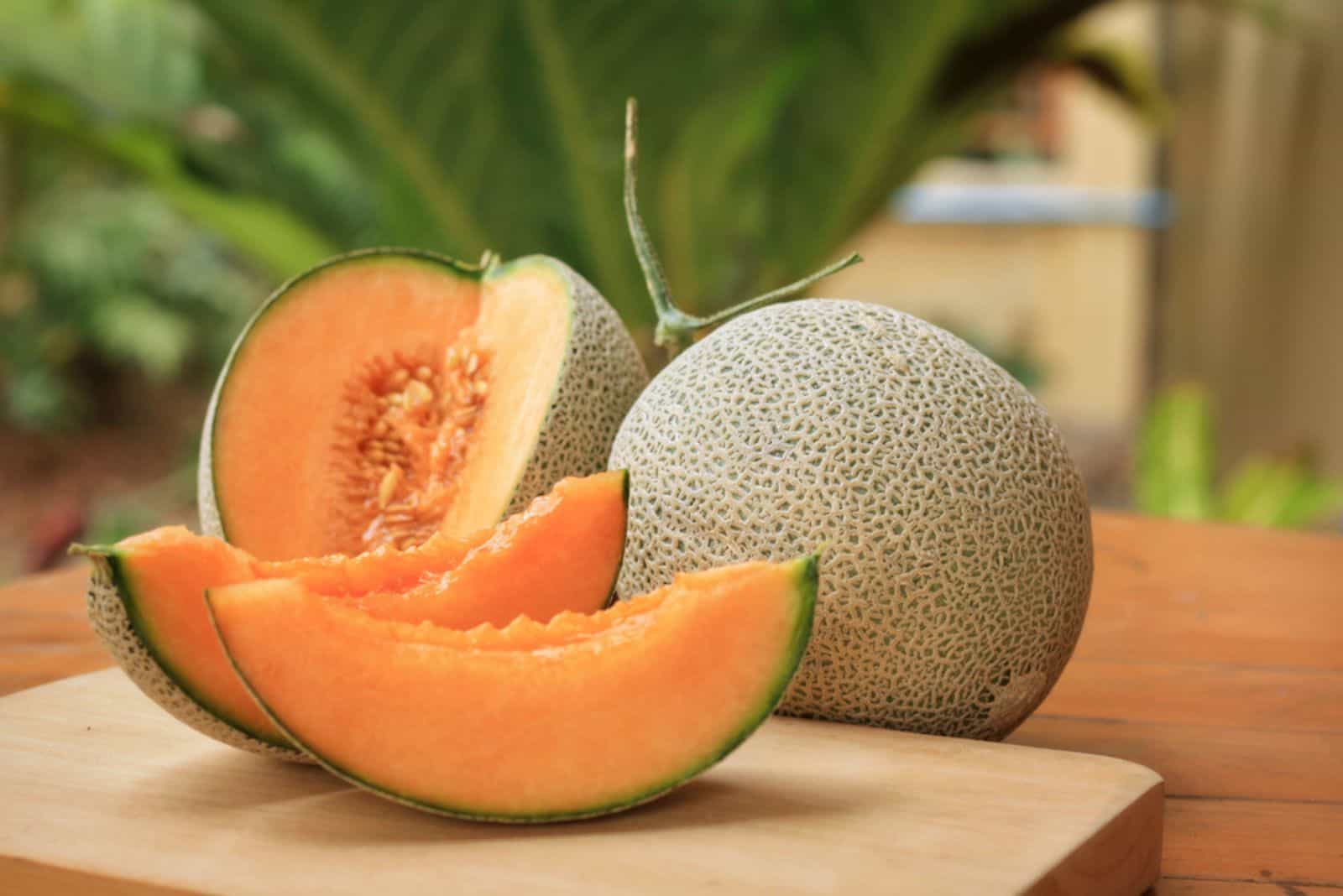
Can you freeze cantaloupe? Yes, you definitely can freeze cantaloupe. But, you must know some important facts related to this topic in order to do things in the right way.
As you already know, just like its relative the watermelon, cantaloupe has a high water content at about 95%.
For that reason, it is not a problem for cantaloupe to go through the freezing process. There are, of course, two main things that determine the quality of every type of food, including our cantaloupe, and those are flavor and texture. The flavor is something that won’t change a bit after freezing.
On the other hand, the texture is something that can be slightly different from that fresh version of cantaloupe.
It can emerge from the freezer with a slightly chewier and more substantive texture, but that is just it. That little change certainly can’t stop you from storing your favorite sweet melon in the freezer and consuming it when it is frosty and at its best.
What Is The Key To The Successful Freezing Of Cantaloupe?
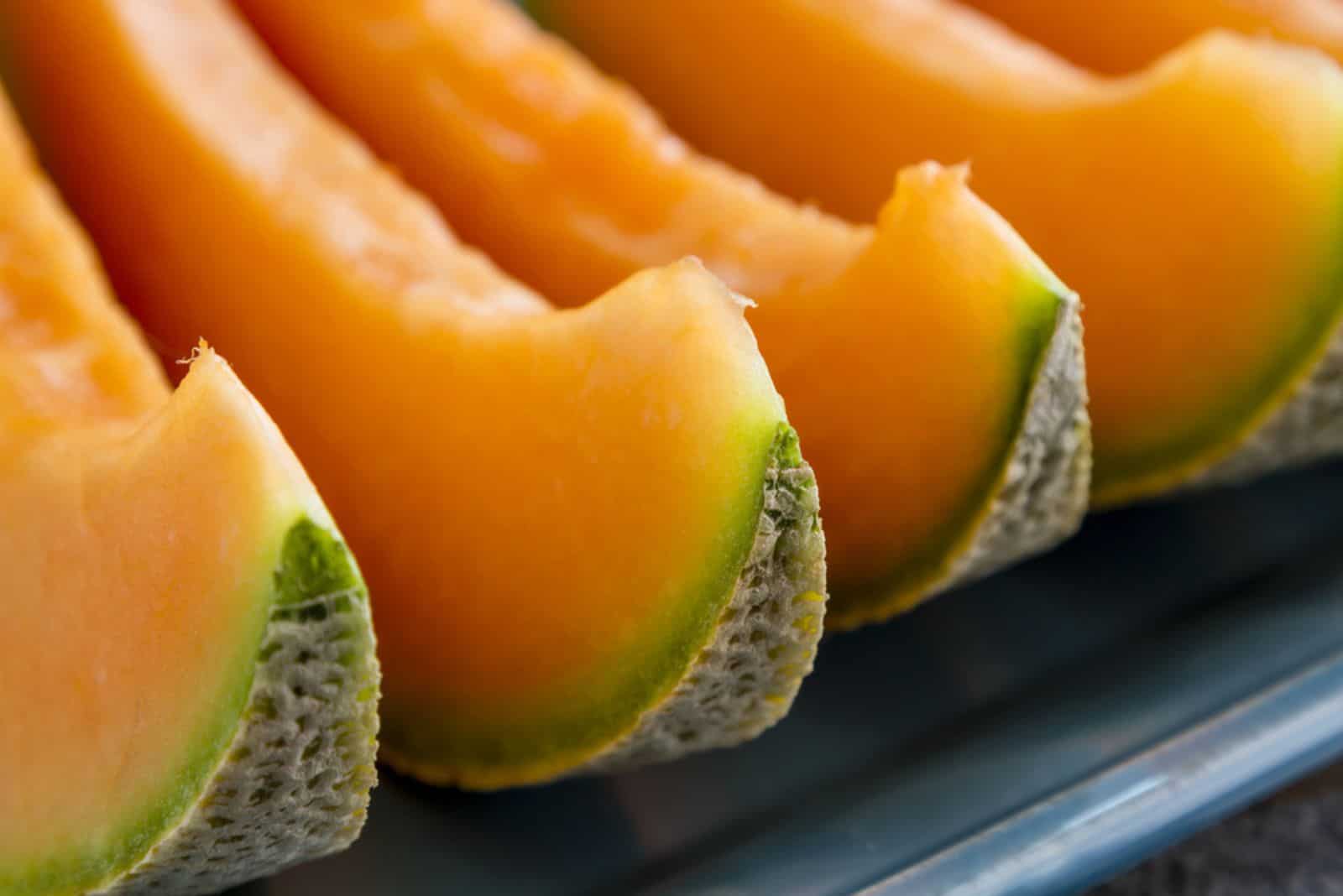
The absolute best candidate for storage in the freezer is fresh and ripe melon. You will find a ripe cantaloupe when you see it with solid rinds with the netting on the surface.
Also, it is good to smell it in order to know that it is a fresh cantaloupe. The stem of a fresh melon should have a slight smell in order for you to know for sure.
As it is not good to freeze an under ripe melon, it is also not a good idea to put an overripe cantaloupe in the freezer.
But, how do you know that cantaloupe is overripe? Well, if the cantaloupe appears with a strong yellow tone of its rind, then that is a sign that it is over ripened. You can also consider smelling it, and if it possesses a very strong odor, then that is a sign of overripeness.
And finally, the final factor that determines the success of freezing cantaloupe is its flesh. Cut cantaloupe in half using a sharp knife and check its flesh.
The flesh must be firm, juicy, and fully colored (similar to the color of orange flesh) in order to successfully freeze. Also, if the flesh is mushy, I wouldn’t recommend you freeze your melon because you will have a very mushy texture when you pull it out of the freezer.
When all this is checked, your cantaloupe is ready for the freezing process.
How To Properly Freeze Your Cantaloupe?
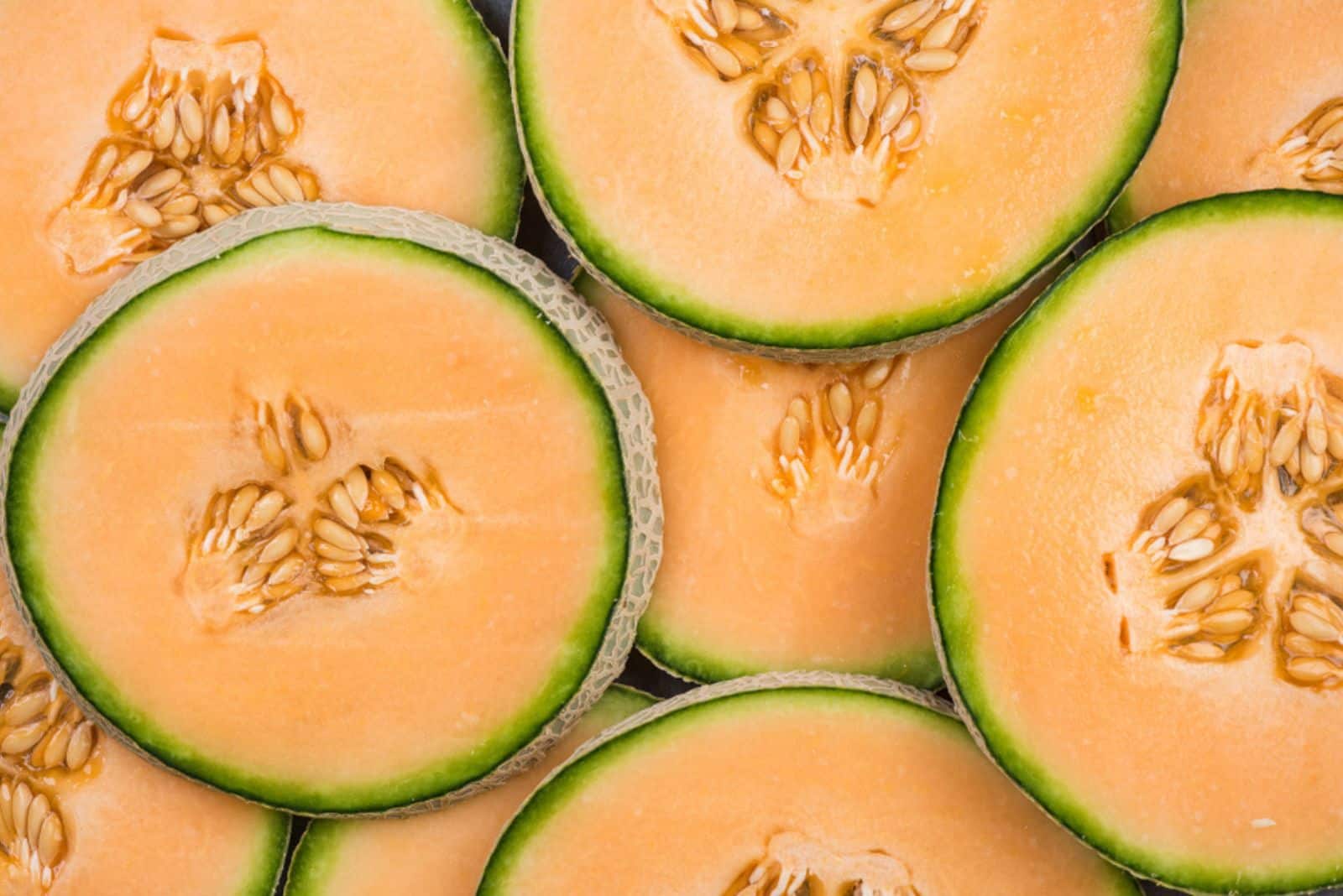
So, if you bought some fresh melons from the nearest farmers’ market and you want to place some of them in the freezer, here are the steps that you need to follow in order to do it properly.
STEP 1: The first step in preparing your favorite refreshing fruit for the freezer is, of course, washing it properly. You need to use some soap and water to properly wash the rind, especially if there is soil on it.
STEP 2: Your next task is to remove the seeds from the melon. You will cut the melon open using a sharp knife and then you will remove all the seeds. Do not worry about the smooth surface.
STEP 3: After you have removed the seeds from the flesh, your next task is to slice the flesh from the rind. You also have to cut that bright green area between the rind and the orange flesh.
STEP 4: Next you will have to chunk or cube the melon. To get the melon balls, you can use one of these tools: a cookie spoon, a melon baller, or an ice cream scoop. It is up to you.
STEP 5: After you have cut the flesh into the desired pieces, you can place those cantaloupe pieces (cubed cantaloupe or chunked cantaloupe) on a lined baking tray or cookie sheet.
You can line it with a single layer of plastic wrap, wax paper, or parchment paper so the removal of the pieces of frozen fruit can be easier.
STEP 6: Now you have to flash freeze the melon chunks by placing the tray into the freezer until they freeze solid.
STEP 7: This step contains the information on packaging your cantaloupe chunks or cantaloupe cubes. Here, you will place them into the freezer bag (freezer-friendly plastic bag), an airtight container, or some kind of freezer container.
It is essential that you remove all the air from the bag by using a vacuum sealer or, perhaps, a straw.
STEP 8: This is the final step in this process. All you have to do is label the bag or a container with the date of storage and just put it in the freezer and let the freezing machine do its job.
You can keep your frozen melon in the freezer for up to 6 months, the time frame in which it will keep its freshness and quality. Actually, cantaloupes are safe indefinitely in the freezer but you shouldn’t keep them frozen for too long due to quality loss, as stated by the USDA.
Do You Have To Defrost Frozen Cantaloupe?
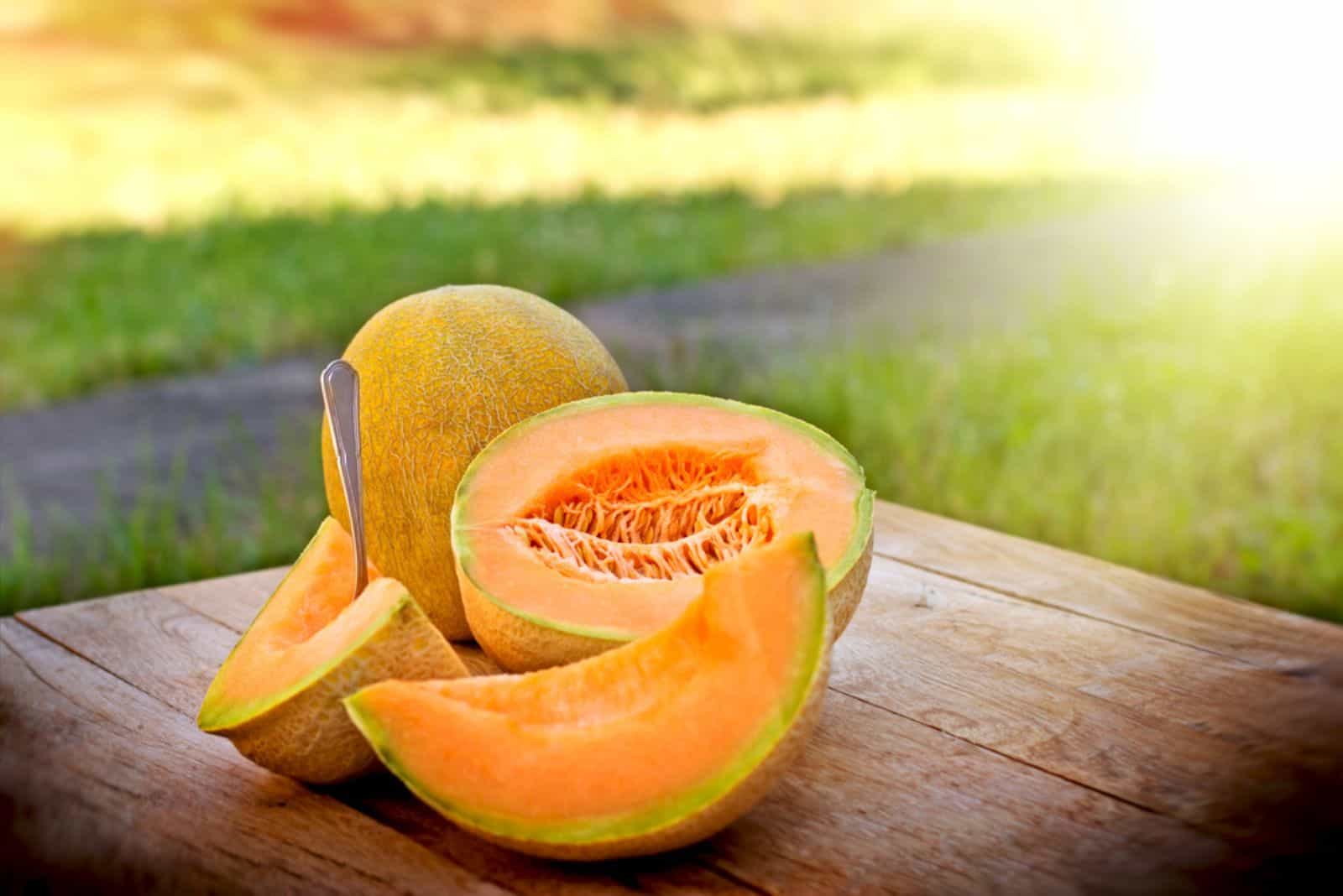
You can defrost cantaloupe if you want, but it isn’t really necessary. It is up to you to decide in which way you will consume this incredible fruit. If it is the summer months, then there is more of a probability that you will eat it right away without defrosting it just for refreshment.
But if you eventually decide to consume the sweet pieces of melon in some other way, you can always defrost it first.
There are endless possibilities for using thawed melon, like in smoothies, sorbet, fruit salad, or other sweet dishes. I prefer using cantaloupe for melon milk tea. I prepare it the same way I would prepare wintermelon milk tea but instead of wintermelon, I add cantaloupe.
If this is your choice, then you just have to transfer your cantaloupe from the freezer to the fridge and let it thaw slowly. It is also not bad to put it on the countertop and let it defrost at room temperature.
Can You Freeze Cantaloupe In A Puree?
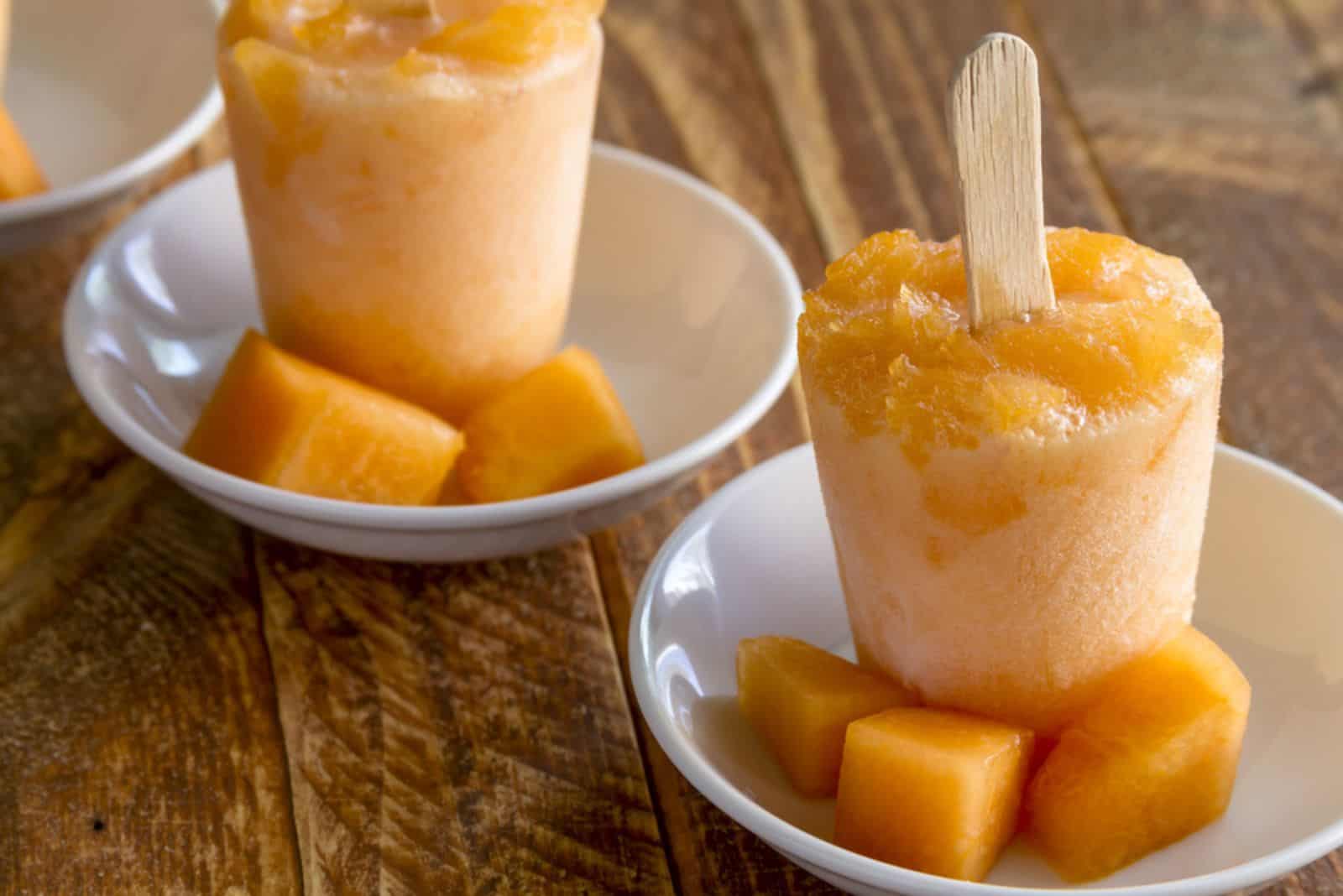
Yes, you can definitely freeze cantaloupe puree. All you have to do is to puree your cantaloupe flesh using some kind of food processor or a blender. If you don’t have any of these, you can also mash the puree by hand.
After you have done that, you can pour the cantaloupe puree into ice-cube trays and put them into the freezer. After they are frozen, you can place them in an airtight container or in the freezer bag to extend their shelf life even more.
When you are making that puree, you are not limited to cantaloupe, but you can use some other types of melon like honeydew or watermelon, for example, and you will get a versatile flavor.
The best way to use cantaloupe puree ice cubes is to chill iced fruit teas with them.
Final Verdict On Freezing This Delicious Melon
The answer to your question of whether you can freeze cantaloupe is here. As you can see, your favorite refreshing melon can definitely live inside the freezer for some time. So, does cantaloupe last in the freezer? Yes, it definitely lasts and it can successfully last there for up to 6 months.
It is only up to you to properly store it in the freezer following the 8 steps from this article and you will be able to enjoy this sweet and refreshing fruit even in the winter if you want.
If you want to know something more about other fruits that start with c, I covered that as well.
